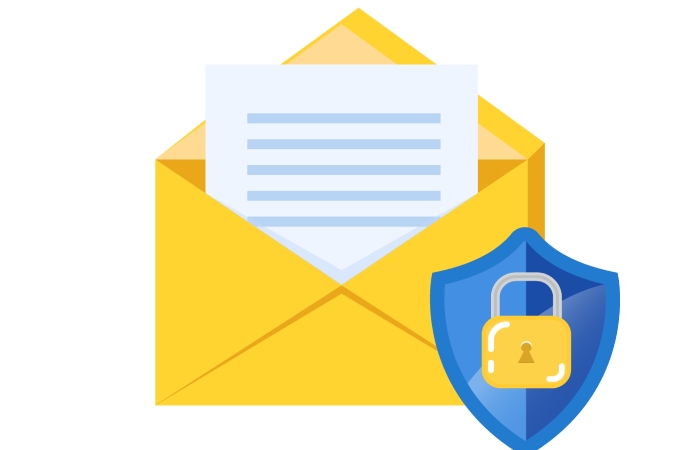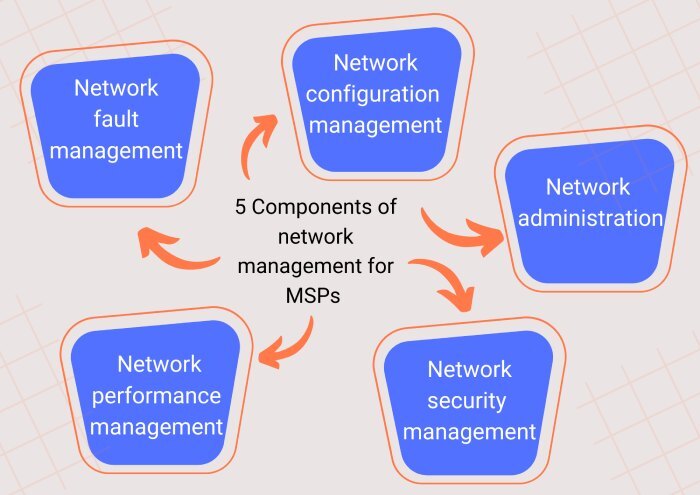Why should MSPs prioritize DMARC for their customers?

Being a Managed Service Provider (MSP) for multiple clients is an intricate job, and they often overlook offering email security solutions, including SPF, DKIM, and DMARC. Email is an integral part of today’s corporate world, but now, this communication channel has become one of the most exploitable attack vectors. Threat actors use generative AI tools to draft compelling, sophisticated phishing emails and send them from reputed domains. This is exactly where SPF, DKIM, and DMARC step in to prevent phishing and spoofing.
This blog explores why MSPs should specifically focus on implementing, managing, and evaluating DMARC for their clients.
What is DMARC and why is it important?

DMARC stands for Domain-based Message, Authentication, Reporting, and Conformance. It’s an email security protocol that is based on SPF and DKIM. It enables the domain owners to instruct receiving mail servers on how to deal with emails that fail SPF and/or DKIM checks.
DMARC requires domain owners to create a TXT-format DMARC record and publish it on their domain’s DNS so that receiving servers can retrieve it and determine what to do with illegitimate emails sent from their domain.
Apart from specifying actions against unauthorized emails, DMARC also has an important reporting feature that provides valuable insights into how the email domain is being used— both legitimately and maliciously. By carefully evaluating these reports, domain owners or administrators can monitor email traffic, identify potential threats, and adjust configurations, as and when required.
Here are three primary reasons why every MSP should set up DMARC for their clients, irrespective of their size-
Protection against phishing and spoofing
DMARC protects against phishing and spoofing by ensuring that only authorized senders can use your client’s domain to send emails. If an email fails SPF or DKIM checks, DMARC tells the receiving mail server how to handle it — either by rejecting, quarantining, or delivering it with a warning.
This prevents cybercriminals from successfully forging your client’s domain in phishing attempts, making it harder for attackers to deceive recipients with fake emails that appear trustworthy. By enforcing strict DMARC policies and reviewing its reports, MSPs can identify and stop unauthorized email sources, significantly reducing the risk of impersonation attacks on their clients.
Improved email deliverability
DMARC improves email deliverability by helping mailbox providers confidently identify legitimate emails. By aligning SPF and DKIM with the DMARC policy, you provide clear instructions on behalf of your client on how to authenticate your messages. This reduces the chances of their legitimate emails being marked as spam or rejected due to authentication issues.
What else it does is identify if there are any miconfigurations in SPF, DKIM, and DMARC records or if you have mistakenly authorized servers that are no longer in use. Timely addressing these issues prevents the deterioration of your client’s domain reputation.
Now, all major email service providers prioritize authenticated emails. Hence, deploying DMARC ensures your clients’ messages are trusted, improving inbox placement rates and overall email engagement.
Gaining visibility into email activities
The DMARC reporting feature offers insights into which servers are sending emails on behalf of your clients and whether those messages are successfully passing SPF and DKIM authentication checks. You also understand how mailboxes are handling them.
There are two types of reports: DMARC aggregate (RUA) and forensic (RUF). The aggregate reports provide a high-level overview of email traffic, showing legitimate as well as illegitimate senders sending messages from a domain. Meanwhile, the forensic reports offer granular details on all the emails that failed the authentication checks. This way, you can spot misconfigurations and block unauthorized sources.

4 reasons why MSPs should offer DMARC services
MSPs primarily focus on network management, cloud services, disaster recovery, and infrastructure consulting, but they often understate email authentication through DMARC. As an MSP, you work with a variety of clients emerging from different industries, each with unique requirements. But what’s common among them is their reliance on emails for communication. Email is one of the most targeted attack vectors, and leaving it unguaged isn’t the trait of an ideal MSP.
Following are the compelling reasons as to why you should add email authentication as one of your services-
- DMARC, along with other security protocols, sets up an extensive infrastructure that prevents email-based menaces.
- DMARC is no longer an alien concept; most clients are aware of it and demand that their domains be protected with it. Therefore, your brand will lose its edge over other MSPs if you don’t offer DMARC services. It’s a unique selling point for clients seeking advanced, holistic cybersecurity services.
- DMARC and other email authentication tools add extra value to your services. Offering these shows that your managed services provide complete email security solutions, setting you apart from competitors.
- It also opens gateways to better revenue. You can offer DMARC and its analysis tools as a premium add-on or include them in a comprehensive package. Since email service providers and businesses prioritize email authentication, you can charge competitive prices and maintain good profit margins.
DMARC holds a significant space on the digital pedestal. Its adoption is on the rise, and so are the opportunities. So, grab them in time.






